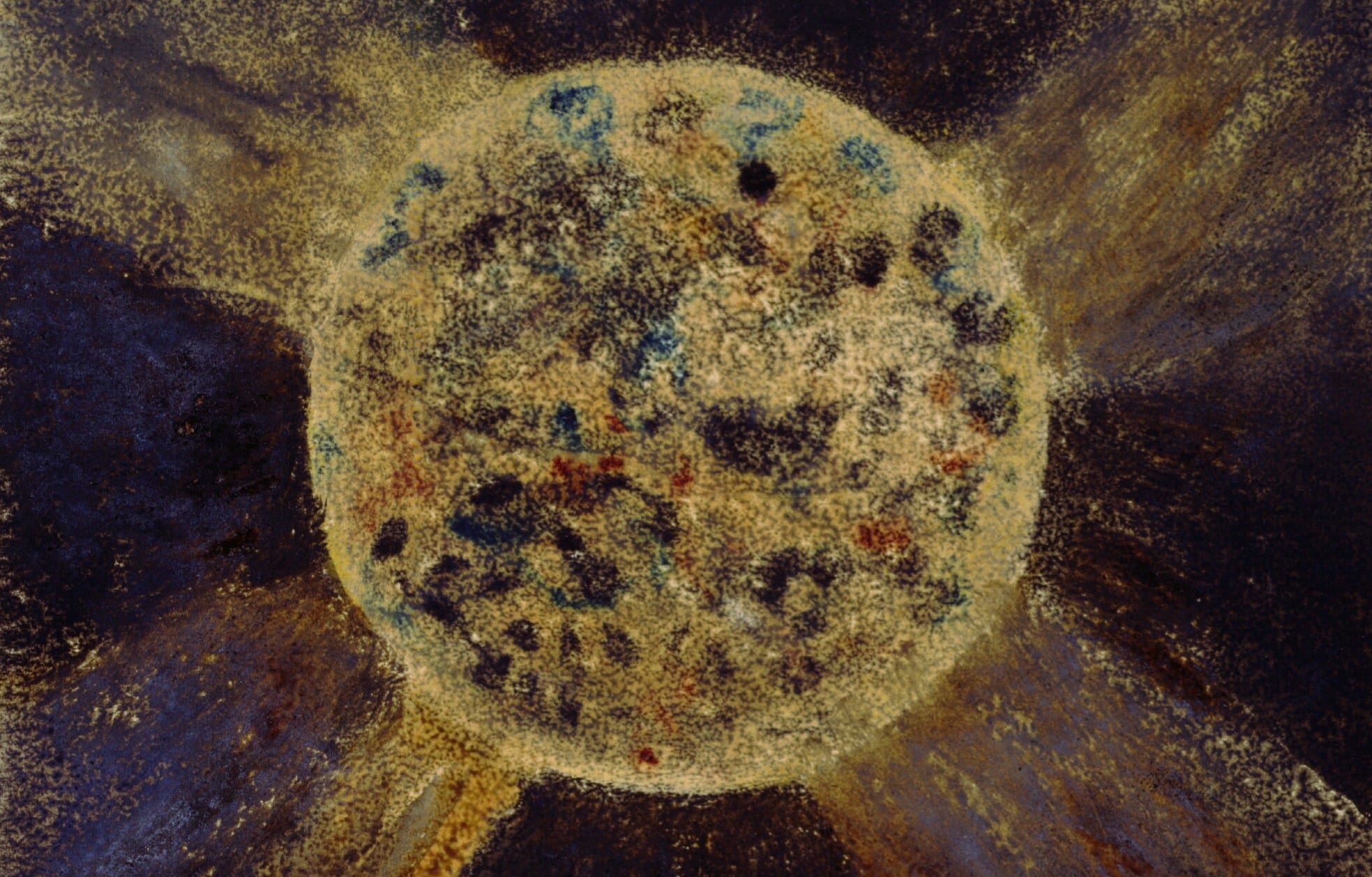Morning again—it feels the same as the morning again last morning. Time easily disappears into the day before and the day before until it seems like one endless day. Nights are different: I usually work as a bar manager, and I play guitar in a hard rock band. Nights are my dwelling place so I manage them better. Still, in a blink of an eye, I can go from heaven to hell and back again mentally and emotionally. The only way I can deal with the ride is to let it happen.
Under the shadow of COVID-19, I find myself unable to concentrate for any length of time. I used to dream of having hours to read the hundreds of books in the Bunker (that’s the name my girlfriend and I have for our apartment in Toronto’s Gay Village). Reading is a heaven of other people’s words that inform me and teach me—perhaps even shape part of me. And yet, in the middle of this lockdown, my concentration is so bruised and limping that I can barely go the distance with any book.
To stay stable, to stay steady, to stay sane I have to access my artistic touchstones throughout the day: The written words of my favourite authors.
A flash of memory from the early 1980s: I had just transitioned and was barely able to get out of the house to go to the corner store to buy a pack of cigarettes. I saw a job posting for a dishwasher in an old age home. I thought that there, of all places, they would at least let me wash dishes.
I went to the job interview and, two minutes in, the human resources person said to me (with all the subtlety of a brick slamming down on my hand on her desk), “Have you ever thought of seeing a psychiatrist?” She quickly jotted down someone’s name and number on a scrap piece of paper. So much for my first attempt at job hunting in my new gender of necessity. That experience brought six months of crippling agoraphobia. When I applied for welfare, my doctors had to send the welfare office a note saying I was incapable of attending their required appointments.
For six months or maybe more I sat there and read. These authors are my friends in challenging times. I’ve felt on my own, but I never doubted my choices. Even in the face of what seemed like impossible obstacles, these books helped me move on. I want to share them here in the hope that they will help with your challenging days ahead.
Nearly every day starts with poet and novelist May Sarton. In Journal of a Solitude, she writes, “I suppose I have written novels to find out what I thought about something and poems to find out what I felt about something.” I first read this book more than 25 years ago, just after moving to Toronto. I had a lot to feel and think about back then. Being physically female was a few years new to me and I was trying to catch up to it; Toronto is where I went through my adolescence quick and fast.
“These authors are my friends in challenging times.”
In Journal, May gave me these words: “The reasons for depression are not so interesting as the way one handles it, simply to stay alive.” These words gave me a jolt. Depression always seemed around the corner. I saw how it was up to me to create what I needed to stay alive, and I saw how I had always done so: Making choices to stay alive.
Although I know the words by memory, I still read Journal of a Solitude almost daily; my emotions are different with each read. “Waiting for the sense of doom to lift—and what did it was watering the house plants. Suddenly joy came back because I was fulfilling a simple need, a living one.” In these times, what a book to read. For me, watering my plants with the sun in my face or washing my old dog’s face brings me joy and I can leave feelings of doom behind.
After Sarton, coffee and the high-level planning of Bunker activities for the day, I pick up—almost reverently—one of two books by my favourite goddess, Patti Smith: Either M Train or The Year of the Monkey. “Not all dreams need to be realized,” she writes in M Train. So simple but life changing, it’s almost my mantra.
I have a love/hate relationship with dreams. Since I was a child, nightmares have never let me go. They follow me throughout the day and wait for me the next night. Even now, I battle with the nightmare and the dream as though their meanings are sent to me like poetry of thought. Patti gets it right. In The Year of the Monkey she writes, “And I thought, as he [Sam Shepard] reached down to brush the hair from my eyes, the trouble with dreaming is that we eventually wake up.” Who would want to leave a perfect world in a perfect dream? But there is the yin and yang in everything.
Patti sends my mind rolling. I start daydreaming and speed-drinking coffee. Often, if the writer gods are in the neighbourhood, I might get a few poems or prose pieces of my own written. Not always, truth be told, but I will get some daydreaming done. Patti’s journals are perfect for that: She weaves a good helping of daydreams into her realities on the page. What’s real and what’s fantasy is for her to know and for me to lose myself in the possibilities.
The afternoon begins; this is a dangerous time. In the past I always self-medicated. For years, I turned to booze. The drinks usually start in the afternoon—not everyday, but frequently enough to make me want to move on. So I can get into a steady writing mode, or I can listen to Motörhead and drink. With his loud, growling voice, Lemmy drowns out the world. “I don’t do regrets. Regrets are pointless. It’s too late for regrets. You’ve already done it, haven’t you? You’ve lived your life. No point wishing you could change it.” Words of wisdom in 4/4 time.
I identify with artists like Lemmy or Keith Richards so much that I sometimes pour myself their favourite cocktail. Luckily for me, they both love whiskey, preferably Jack Daniels, my favourite for years.
Afternoon cocktails aren’t always a constant. Sometimes I read Joan Didion. Apparently she would write for hours and not have her first cocktail until she was finished typing for the day, sometimes as late as 3 a.m. Joan reported on current events with the flair of a novelist, a style that came to be known as “new journalism.” Her friend, playwright David Hare, called it, “the history of her time through the essay.” Her books Slouching Towards Bethlehem, The White Album and The Year of Magical Thinking are wonders.
All the local businesses shutting down, all the Pride festivals being called off and my own place of work, Buddies in Bad Times Theatre, cancelling the rest of its season, these things strike me to my core. In the face of such loss, I feel like saying, “Fuck it. Why bother being productive?” Joan has felt this way. “I had been paralyzed by the conviction that writing was an irrelevant act, that the world as I had understood it no longer existed,” she writes in the preface to Slouching Towards Bethlehem. “If I was to work again at all, it would be necessary for me to come to terms with disorder.” That was then, in the mid-1960s, and this is now. If she could go on, so can I.
If I move through the afternoon lightly, I may put down my pen and pick up my daydreams as I sip a cocktail and delve into Frank O’Hara’s Lunch Poems. His observations of New York or his day-to-day experiences are a record of life and emotions and love. Oh, so good.
Now things start to pop, and I need to read Allen Ginsberg’s Howl. My favourite line of the huge, book-length poem is in the footnote: “Holy forgiveness! Mercy! Charity! Faith! Holy! Ours! Bodies! Suffering! Magnanimity!” I love how that man writes about politics, poets, his gay love and other kinds of love.
Then it’s five more fresh ice cubes hitting the glass, another double of Jack Daniels and a spill of soda. I leave William Burroughs’ novel Queer to end the day. I stumble upon a little passage from Burroughs in the introduction. “As soon as something is written, it loses the power of surprise,” he writes, “just as a virus loses its advantage when a weakened virus has created alerted antibodies.” Whew.
Scanning through the day with limited concentration, I may manage only a paragraph from a poem or two pages from a novel or memoir. But this still helps steady the unsteady time both around and inside me.
Of course, there are different moods, different days, different authors: Maybe William Blake or Arthur Rimbaud or Jean Genet or Lou Reed. These are my bunkered-down days with lots of idle, unfocused time between walls and a couple of rooms. I do lots of wandering, touching books and other touchstones. But I have to get through these endless days. The night, and the twilights on either side, seem more important to me now.
The night often reveals the monsters within me. They’re too scary to look at it, to acknowledge. They are my own private screams. In a time of isolation, where body and mind—even my very soul—are isolated from each other, these pages, the thoughts and works of others throughout the day, strengthen and calm me. The sudden fear dissipates and I see the monsters for what they are: Parts of my tattered self trying to find ways to be whole again.


 Why you can trust Xtra
Why you can trust Xtra


